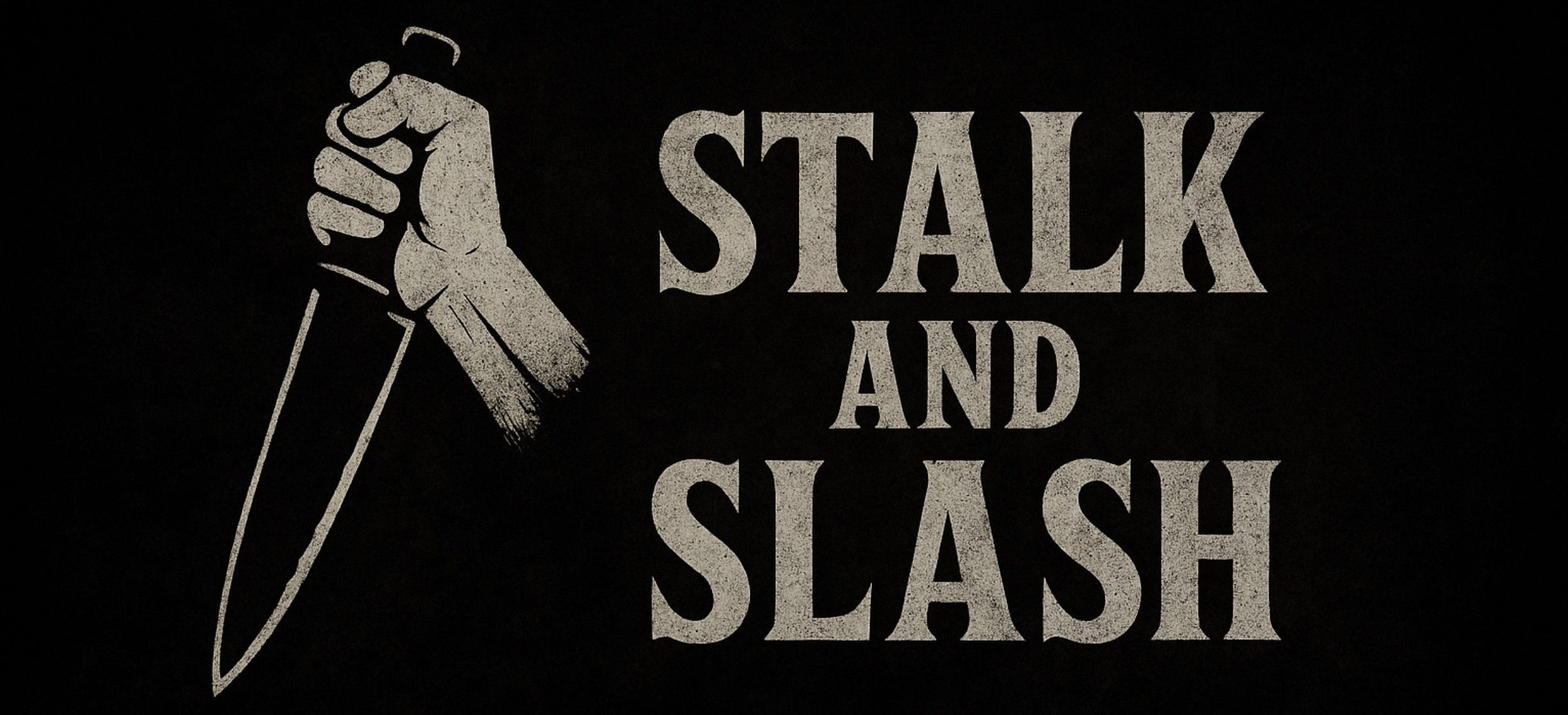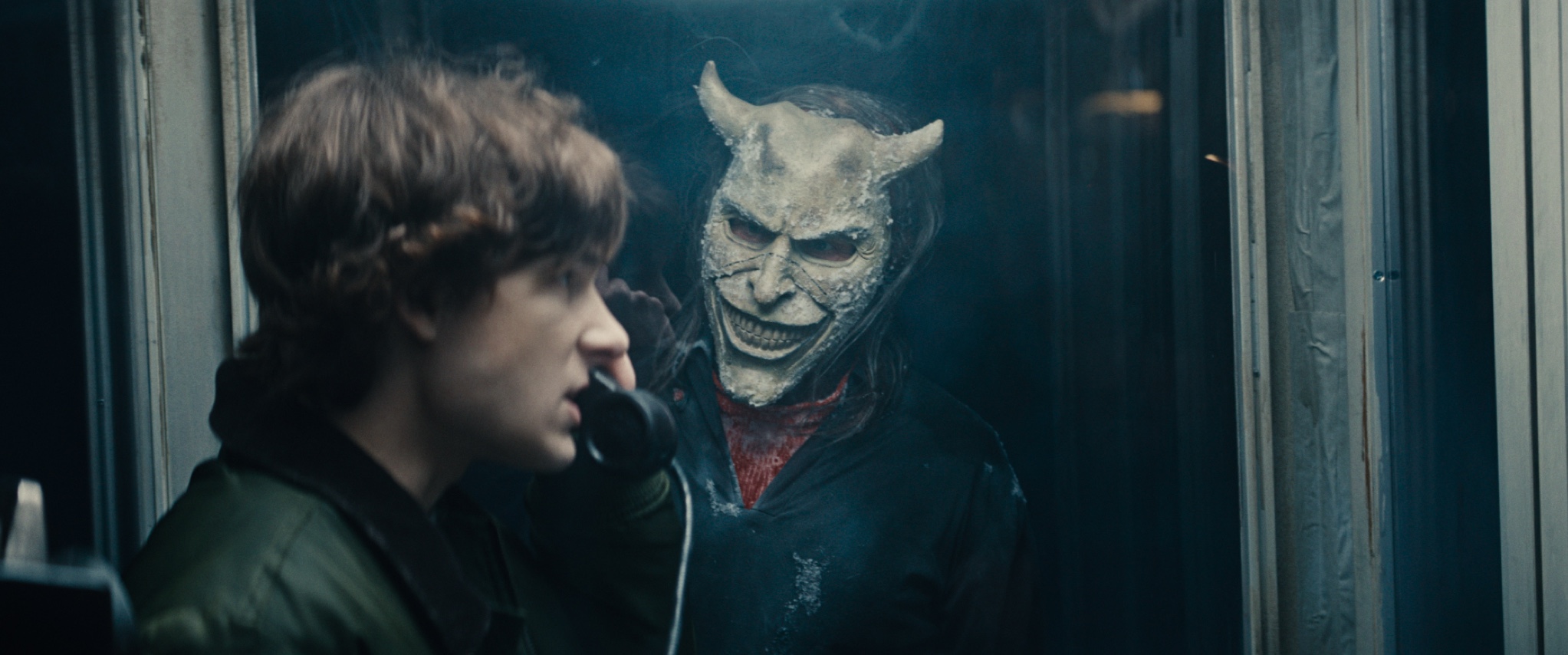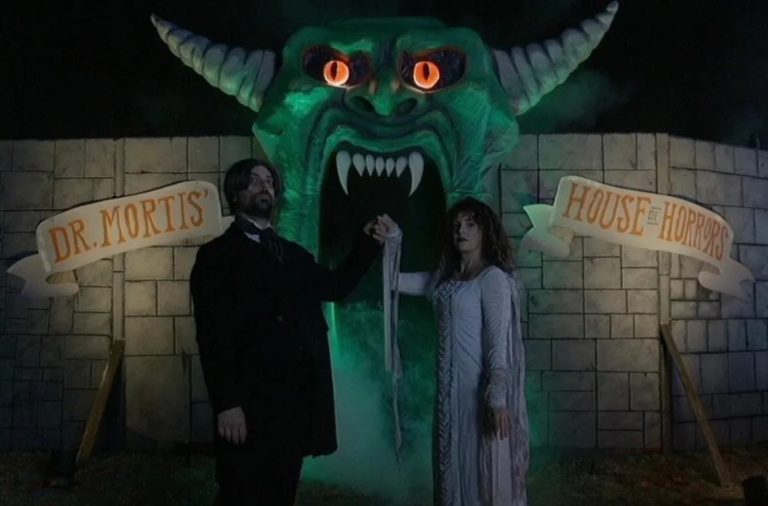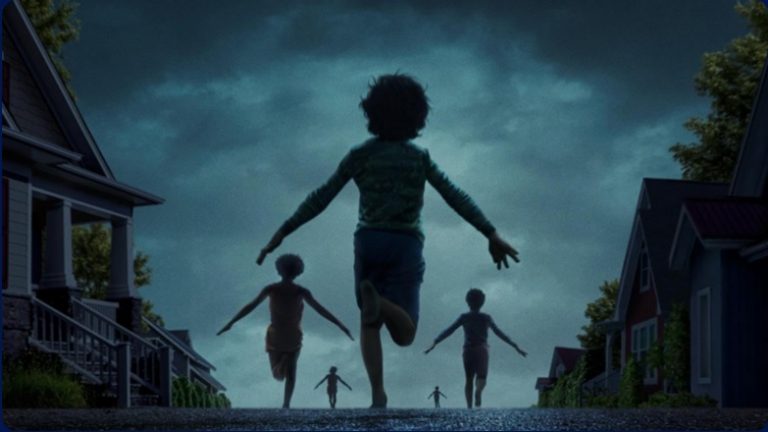Black Phone 2 Review – Derrickson Dials Up a Chilling Nightmare Sequel That Rings True
When The Black Phone first rang in 2021, few expected the eerie little supernatural thriller to spawn one of horror’s most talked about villains in years. Ethan Hawke’s sinister child snatching magician The Grabber joined the pantheon of modern horror icons, then promptly got his neck snapped. Now The Black Phone 2 answers the call, bringing back the dread and doubling down on the nightmare. Scott Derrickson’s sequel does what few horror follow ups dare to attempt, it raises the stakes, bends the rules of reality, and somehow makes death only the beginning.
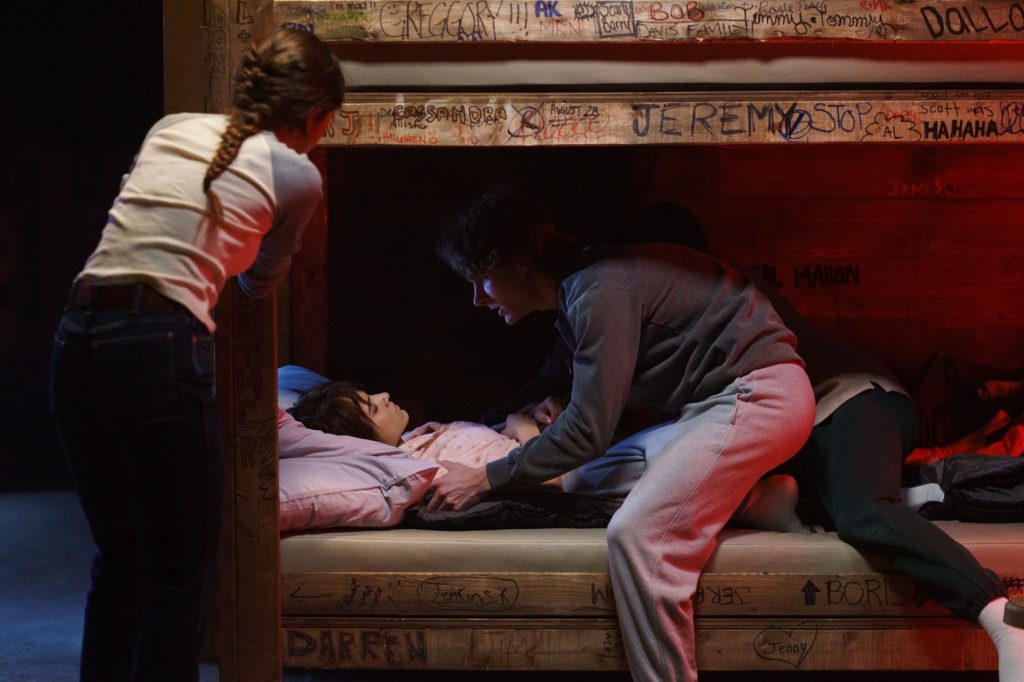
Set a few years after the first film, Black Phone 2 finds Finney and his sister Gwen still haunted by their past. The events in that basement have left a scar that refuses to fade. Gwen, just like her mother, now has dreams that feel far too real. Her visions play like haunted home movies, and when she receives a mysterious phone call from the past, the siblings take summer jobs at a Christian camp high in the mountains. There they hope for peace, but find something much worse. The Grabber is back, and he is not resting quietly.
Rumours before release suggested Derrickson and writer C Robert Cargill had made a film inspired by Nightmare on Elm Street, and for once the internet was right. The dreamscapes, the blurred line between waking and sleeping, the rules of a nightmare world that bleed into reality, all echo that spirit of wild eighties horror. When Gwen sleepwalks into one of her dreams, she finds herself face to face with The Grabber, and the film shifts gear completely. Injuries that happen in the dream appear in the real world, bodies twist and thrash as unseen forces attack them. It is both absurd and effective, a loving nod to a time when horror sequels swung for the fences.
Derrickson remains a master of atmosphere. Anyone who saw Sinister knows he understands the power of imagery that lingers long after the credits. Black Phone 2 brings back that style in its dream sequences, filmed in degraded Super 8 to look like cursed home videos. It feels like we are watching memories rot in real time. These sequences are not nostalgic tricks, they are visual hauntings that feed the film’s dread. The cold clarity of the waking world contrasts with the jittering, grainy nightmare, creating a hypnotic rhythm of terror.
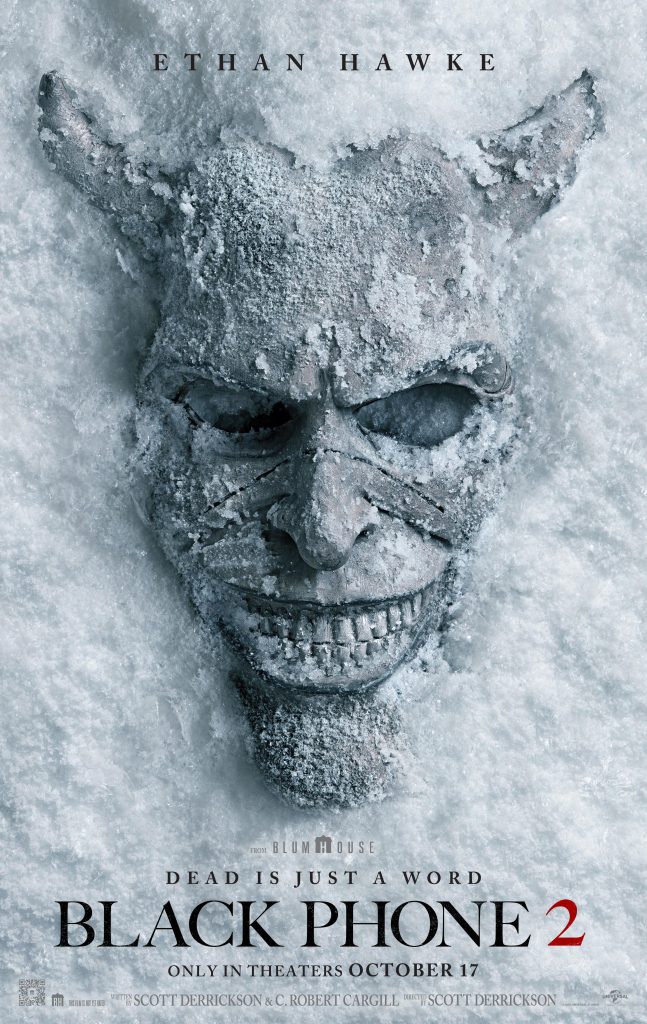
Visually the film is stunning. Cinematographer Par M Ekberg captures the frozen camp with such clarity that the snow itself becomes a character. The endless white stretches feel vast and isolating, turning the open space into a new kind of prison. Derrickson uses the landscape as an emotional cage, trapping his characters in plain sight. There is nowhere to hide and no way out, only the endless expanse of white that swallows sound and hope.
Mason Thames and Madeleine McGraw carry the film beautifully. Thames gives Finney’s trauma a quiet intensity, his posture tight and defensive. McGraw is once again excellent, playing Gwen with a mix of courage, fear and faith that grounds the film’s supernatural edges. Their sibling bond is believable and heartfelt, the emotional anchor in a sea of ghosts.
And then there is Ethan Hawke, the whispering demon at the edge of every frame. Most of his presence is felt through voice and suggestion, but what a voice it is. He does not growl or shout, he purrs menace like a bedtime story gone wrong. The Grabber has evolved into something larger than life, a phantom echo of evil. It is a clever transformation, one that ensures the character remains terrifying without simply repeating old tricks.
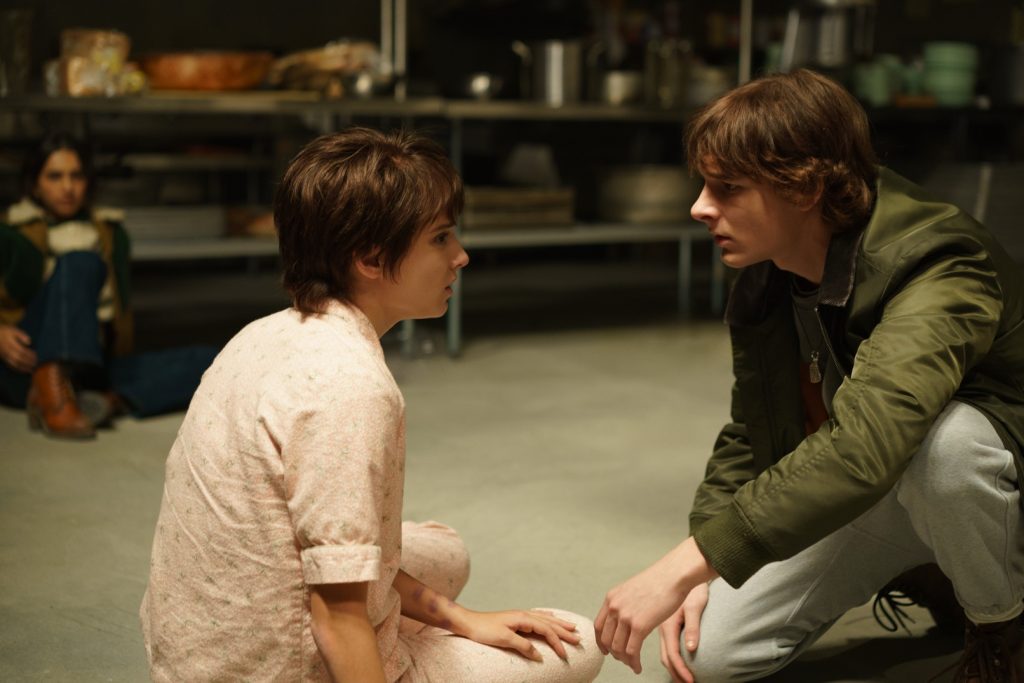
The sound design deserves special mention. Every ring of the phone, every hiss of static and every gust of wind seems alive with hidden voices. When combined with Blitz Berlin’s ominous score, it becomes an audio nightmare that crawls under the skin.
Not everything works perfectly. The middle act slows down with too much explanation of the rules behind the dreams. Horror thrives on mystery, and the script sometimes forgets that. When characters start explaining rather than experiencing, the fear drains away. A little less chatter and a little more terror would have helped maintain the momentum.
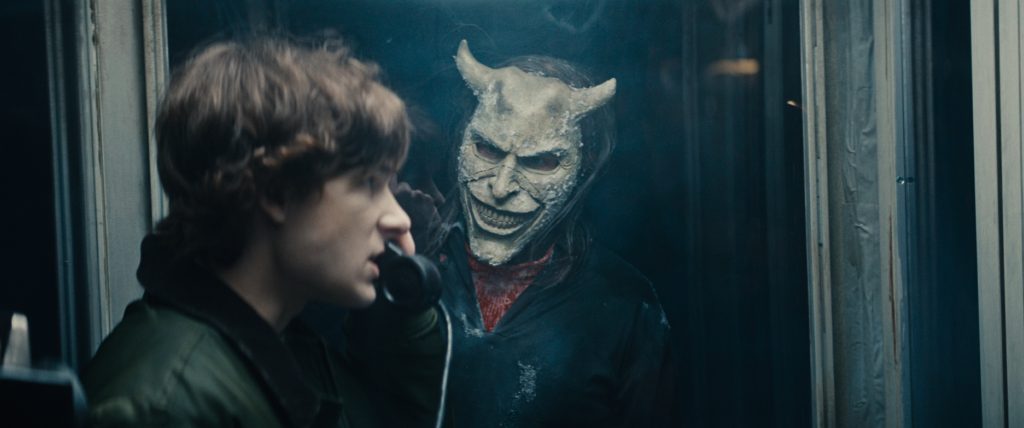
Still, when Black Phone 2 hits, it hits hard. It is bold, strange, and unafraid to evolve. Rather than replaying the first film, Derrickson and Cargill embrace surrealism and faith to expand the mythology. The film might not scare in the traditional sense, but it fascinates, unsettles, and above all entertains. It feels like a ghost story told by someone who has seen too much snow and not enough sunlight.
By the end you might not know exactly how The Grabber has returned, but you will not care. You will just be glad he called.

